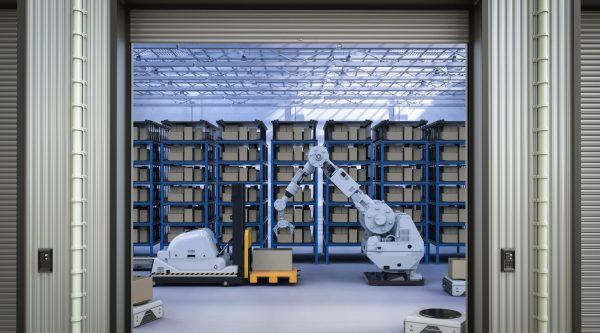MIDA Insights – Services

This site
is mobile
responsive
The e-Commerce industry is growing exponentially within the Southeast Asia region particularly in Singapore, Malaysia, Indonesia, Thailand, Philippines and Vietnam. BMI Research in 2018 reported that these ASEAN countries are set to contribute an estimated of USD64.8 billion (RM257.9 billion) in 2021 from online shopping market activity, a giant leap from USD37.7 billion recorded in 2017. Malaysia‘s share of total online retail sales was at 2.7%, positioning Malaysia second in the region.
The rapid growth of e- Commerce industry, particularly in Malaysia today has created many positive outcomes such as technology adoption among communities and industry players, T increasing trade and supply chain activities, growth of SMEs and talent development. These positive outcomes had encouraged many SMEs to expand their business and Malaysian logistic players adopting technological infrastructure within its business operation.
Ministry of International Trade and Industry (MITI) reported in 2018 that the e-Commerce value-add and contribution to the gross domestic product in Malaysia continuously improved over a period of seven years to RM85.8 billion in 2017 from RM37.7 billion in 2010, with an average annual growth rate of 12.5%. The Government targets to increase the GDP growth rate by 20% by the year 2020.
The booming growth of e-Commerce industry had impacted the logistics industry in Malaysia to go through a series of evolution in their operation to form seamless fulfilment hubs in the country. Companies are looking forward to establishing its regional fulfilment operations in Malaysia to serve their global supply chain activities due to Malaysia’s strategic geographical location and the increasing adoption of technology in the country makes the supply chain process seamless and efficient.
Zalora, Asia’s leading online fashion destination which was founded in 2012, consolidated it’s fulfilment operations across six countries into a single operations hub in Malaysia. The company had spent a total of USD4.2 million (RM20 million) in 2017 to establish its regional e-Fulfilment hub in Malaysia which handles 100% orders from Singapore, 99.7% of which are fulfiled on the same day.

GD Express Carrier Bhd (GDex) a local Malaysian courier service provider established in 1997 has increased its daily parcel sorting capacity from 78,000 parcels per day in 2016 to 85,000 parcels per day in 2017. The company is expanding its current warehouse facility and expects to increase its capacity to 100,000 parcels per day by the end of 2017 and 130,000 per day in 2018 making them the regional champion in providing e-Fulfilment services.
The launch of Digital Free Trade Zone (DFTZ) in 2017 had provided e-Commerce companies with a seamless platform for trading activities and to fulfil the logistics requirements. The e-Fulfilment hub, Kuala Lumpur Airport Cargo Terminal (KACT1) located in the old Low-Cost Carrier Terminal (LCCT) facility was hence developed.
The KACT1 development was completed in 2017 and is currently operated by Pos Malaysia to serve Lazada. This e-Fulfilment hub is the first phase of DFTZ development. The second phase will involve developing a logistics park, which comprises over 60 acres plot of land near KLIA and will be operational by 2020.
Conventional logistics methods will gradually be replaced by the application of technology and ICT infrastructure in their daily logistics operations. The adoption of technology helps companies to manage their operation in a more efficient manner providing seamless logistics services to their clients worldwide. The promising logistics services will thus encourage e-Commerce companies to establish their e-Fulfilment hubs in Malaysia making Malaysia as the regional e-Fulfilment hub.
This is in line with the Government initiatives led by the Malaysian Investment Development Authority (MIDA) under the National e- Commerce Strategic Roadmap (NESR) which intends to position Malaysia as the regional e-Fulfilment hub. Under this initiative, MIDA plays a key role in facilitating logistics companies to build their capabilities in operating e-Fulfilment hubs to cater to the diverse needs of the e- Commerce industry.

MIDA encourage logistics companies to invest in physical and virtual ICT systems, such as robotics and automation, racking system, warehouse management system, transport management system as well as scanning and tracking system which enables them to undertake complex activities such as managing large orders and inventories, coordinating and tracking real-time delivery and processing returned items.
The Integrated Logistics Services (ILS) incentive scheme under MIDA was developed in 2002 to encourage logistics companies to operate in an integrated manner under a single entity by offering three principal activities which include transportation, warehousing, freight forwarding and at least one value-added logistics related activity.
Over the years, many logistics companies in Malaysia has utilised this incentive package for expansion and diversification of their business operation to cater for the growing global demand for total logistics solutions from various business sectors. MIDA has approved over 90 logistics companies under the ILS incentive scheme. Local logistics companies, such as PKT Logistics Sdn. Bhd., CJ Century Logistics Sdn. Bhd. (formerly known as Century Logistics Sdn Bhd), FM Global Logistics Sdn. Bhd., Citylink Express Sdn. Bhd. and GDEX had benefited from the ILS approval.
In 2017, MIDA introduced the second round ILS incentive which is an extension of the ILS incentive scheme with the intention of encouraging logistics companies to enhance their services by the adoption of technology in their operations to support e-Commerce industry in the region and position themselves as regional e- Fulfilment hub providers in Malaysia. As of 2018, MIDA has approved eight e-Fulfilment projects in which seven of these projects are locally owned logistics companies. MIDA hopes with the second round ILS incentive scheme being introduced to the industry, more logistics companies will be motivated to position themselves as regional e-Fulfilment players and thus support the growth of the e-Commerce industry in Malaysia.
